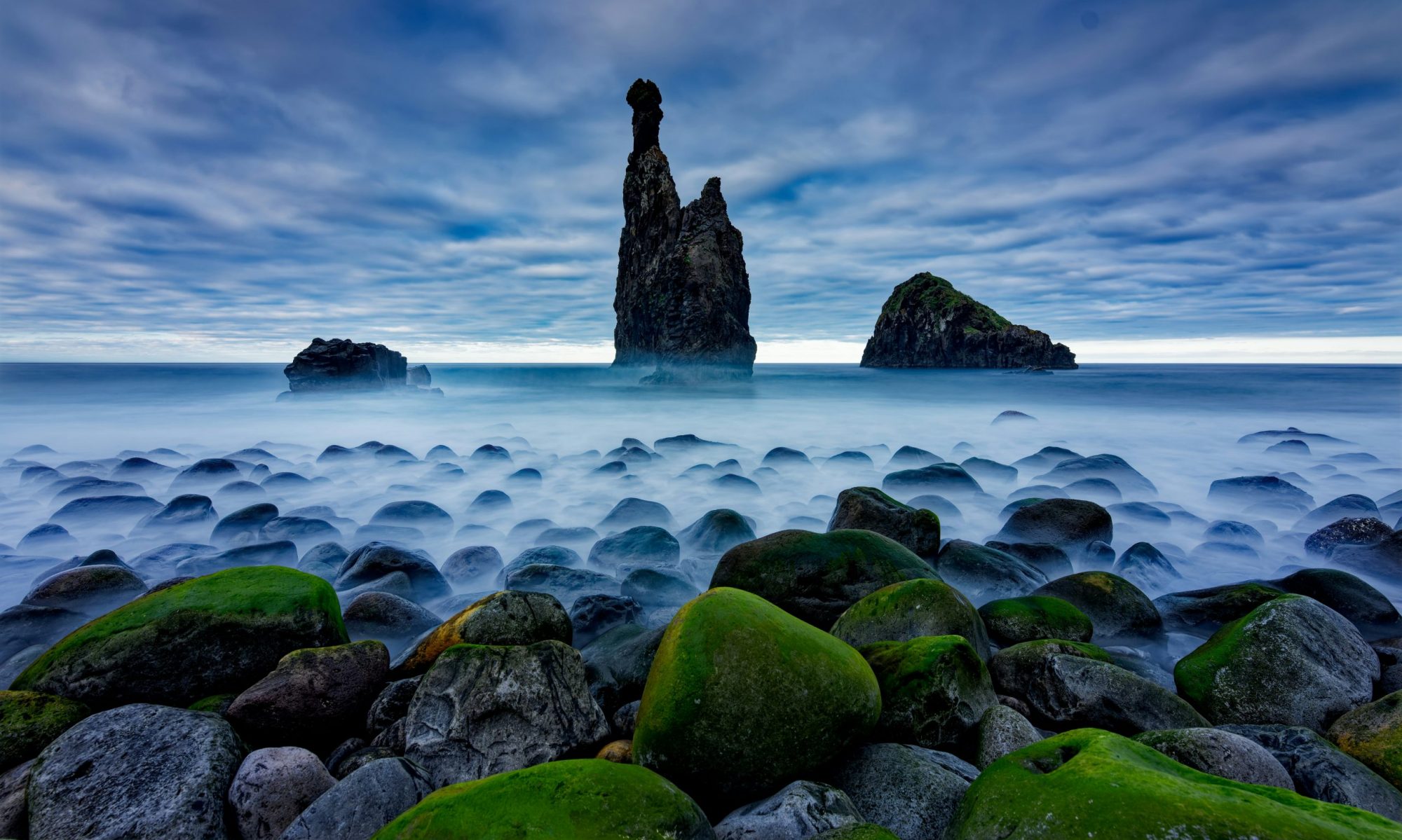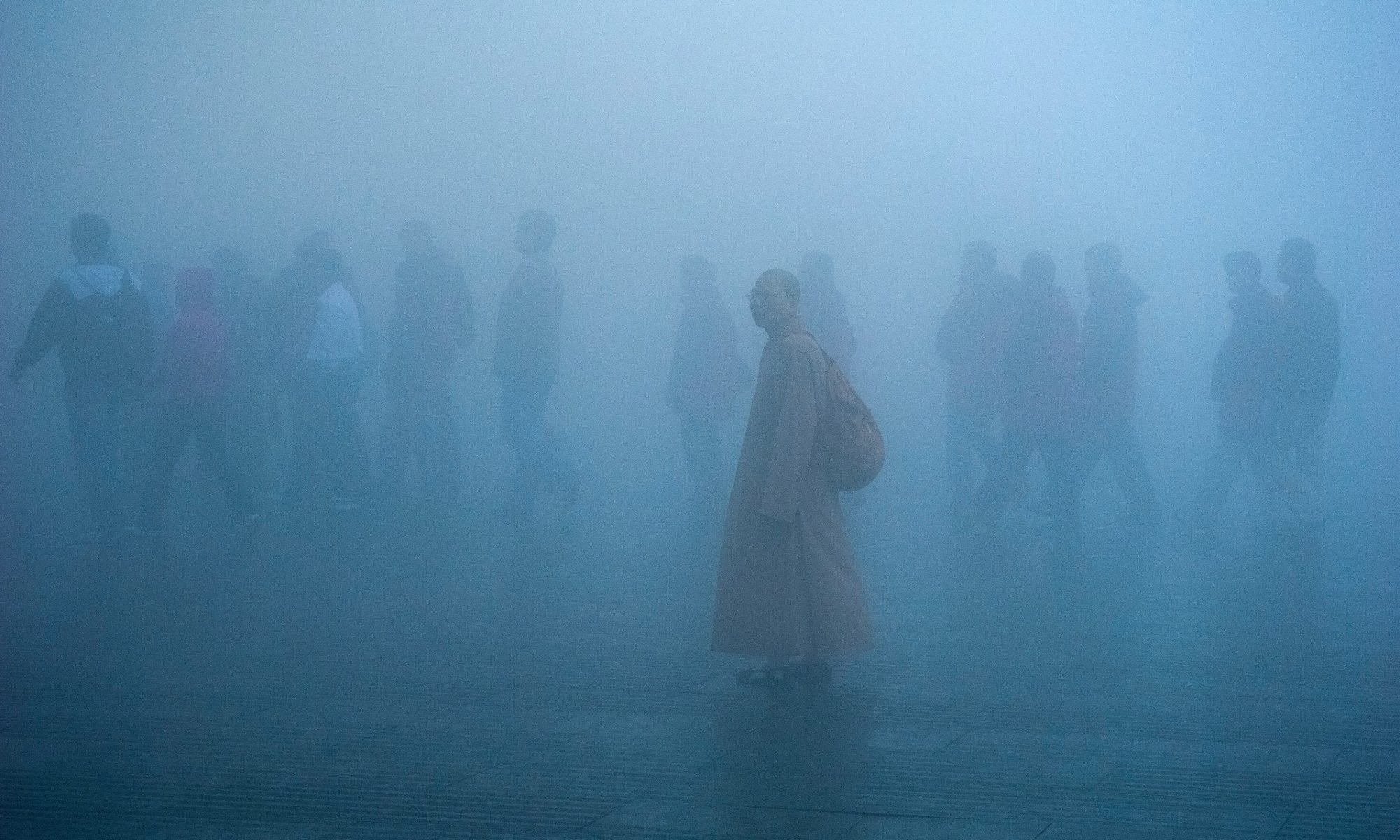Memories of the Future 2.0

An Interview with
George Tsakraklides and Lyle Lewis
This is the second in a series with Tsakraklides and Lewis. The first appeared in fall 2024 and presents their perspectives on their work and some predictions for the future. In this interview, they talk about the human journey to extinction in terms of recent political and social events.
George Tsakraklides is a nonfiction and fiction writer and author of The Unhappiness Machine, Beyond The Petri Dish, In The Grip of Necrocapitalism, A New Earth, and other titles. His latest book is Frankenpolitics. His work revolves around the theme of civilisational collapse and humanity’s self-destruction and draws parallels among fields as diverse as biology, ecology, anthropology, philosophy, cognitive psychology, and economics. After earning degrees in molecular biology, chemistry, food science, and earth sciences, he left the science world for a career in data analytics and business intelligence. He worked for some of the world’s biggest corporations and became an expert in consumer marketing, which gave him experience in the profit-driven and exploitative forces that control modern human society. After two decades in that business, he realized that his predominant interest was in ecology and humanity’s broken relationship with nature. He now splits his time among the UK, US, and Greece, where he tends a conservation garden that he created atop ancient 2,500-year-old Greek ruins.

Lyle Lewis is a former endangered species biologist/supervisor with the U.S. Department of Interior. He founded the Western Bat Working Group and Southwestern Carnivore Committee and received awards for bat, carnivore, and natural area conservation. His career and love of the outdoors have taken him to many of the wildest places in North America, and he has spent several decades in backcountry and wilderness areas. During his professional career, he held diverse and unusual positions, including range conservationist, watershed specialist, hydrologist, fisheries biologist, ecologist, wildlife biologist, endangered species branch chief, and endangered species recovery coordinator. More than two decades of his federal career were spent in efforts to conserve imperiled species in the face of livestock grazing, logging, oil, and gas development, agricultural development, mining, recreation, highway expansion, construction, rights-of-way, and urban development. His book Racing to Extinction: Why Humanity Will Soon Vanish was published in early 2024.
In a Jan. 2, 2025, column for the New York Times, David Brooks said, “We’re in an epic race with China over the future, over who will master artificial intelligence and other technologies. Of course we need to attract the world’s best talent.” Brooks was writing about the disagreement within “Trumpism” over the use of skilled immigrant labor to fill jobs that presumably could be filled by Americans. Framing our future in terms of how well we do in a technological competition with China seems to me to be another twenty-first-century scenario we are wasting our time on. To me, the true struggle we are engaged in is with the conditions of our finite environment and the biological needs of our growing population of eight billion humans. I imagine that any competition will be over resources: clean air, clean water, soil that can be farmed for food, and so forth. Is it possible to change our references—our worldview—so that we focus on living things? Or is it too late for us? Have we changed so radically that we can’t recover our fundamental relationship to life?
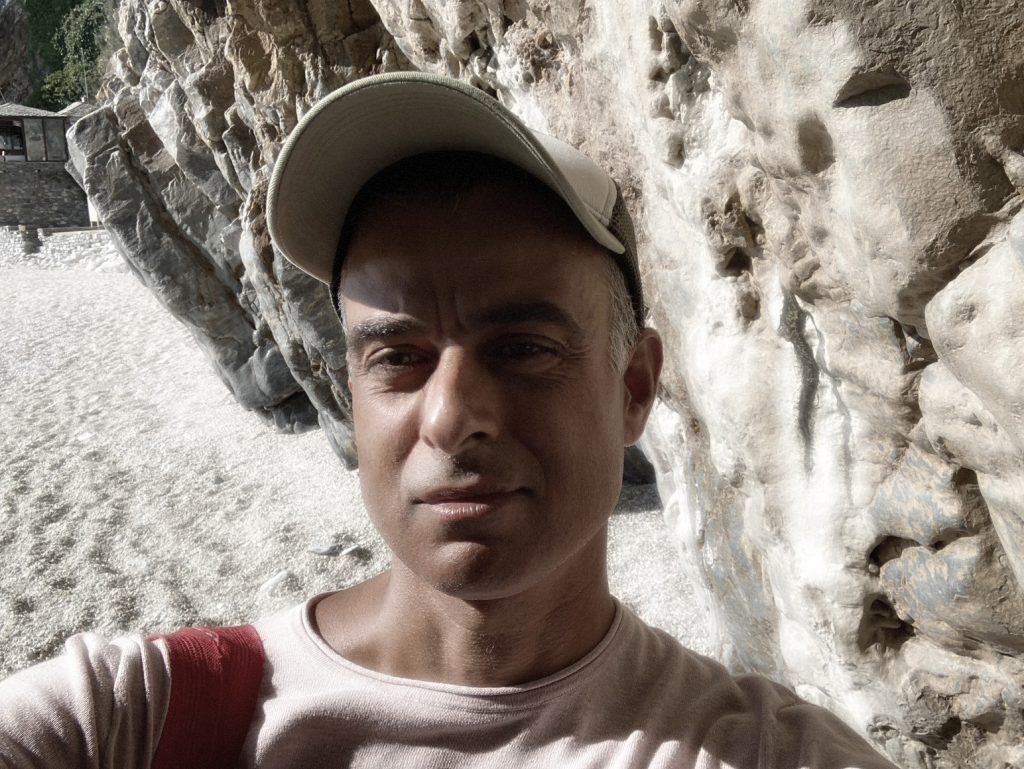
George I’m not sure if we were ever self-aware enough to have a “fundamental relationship to life” per se. As a biologist I tend to be more pessimistic than others as I’m aware of how much of human behaviour can be genetic, and how evolution selects for greed. We also come with a very long list of cognitive limitations and biases which prevent us from responding to crises in the right way. If anything, we have a very strong drive to take huge risks and ignore danger. Much of this was selected for by evolution itself, because there were tremendous evolutionary advantages to recklessness. Ethics and social institutions are something we invented along the way, obviously with limited success, but arguably quite successfully given that these things didn’t come with our package: being ethical, just, compassionate, are just not the factory settings of Humans 1.0.
Further to this point, there are no “before” and “after” humans: we never changed from “good” to “bad” because we were never either of these two. We were, and are, a life form trying to survive. What did change through time, however, was our ability to overcome predators, exploit everything around us, and plunge the planet’s ecosystems and climate systems into a crisis at a new, terrifying scale. So the “change” was never qualitative but quantitative in nature, despite our cultural and technological development making it seem that we are “evolving.” In biological terms there has been zero evolution for millennia. We are the same we have always been, equipped with an RELD (Resource Exploitation Logistical Device) brain, which is a product of the abundant times it evolved in. This “survival brain,” which is more of a concept I invented than a scientific entity, is more powerful than any set of ethics, government, or society. It determines our behaviour, essentially leaving us with little to no free will. Testament to this is that despite all we know we have done to this planet, we have failed to control our own population, the greatest parameter in this quantitative equation.
From The Unhappiness Machine: “Never before in its history has humanity built a civilisation which had at its disposal so many different technologies to monitor, measure and predict its own collapse—yet is so unwilling to do anything about it.”

Lyle You hit the nail on the head, George. Everyone does everything possible to rationalize 8.2 billion people as harmless. We focus on climate change and biodiversity loss and invasive species and anything/everything but the elephant in the room.
The sixth mass extinction, which began 2.5 million years ago, predates the emergence of the Homo genus. The number and rate of extinctions have steadily increased over millennia, leading us to the brink of extinction today. In this context, humans cannot be simply labeled as good or bad; rather, we are products of a chaotic and indifferent evolutionary process. Ultimately, we navigate a world that reflects these very complexities. In spite of our perception of ourselves as God-like creatures with dominion over the Earth, the reality is that we are just another species in an evolutionary process spanning nearly 500 million years. The Earth has dominion over us, and we will vanish before we acknowledge this profound truth.
In January, HuffPost reported that a DOT memo orders agency programs to prioritize funding projects for communities with “marriage and birth rates higher than the national average” and requires recipients to “comply with federal immigration enforcement…the latest effort by the administration to target undocumented immigrants, conduct mass arrests and deportations, and deny federal transportation funds to so-called sanctuary cities.” This new development creates a new incentive, one that runs counter to the wisdom of environmental ethics, which encourages careful, controlled growth. It seems to me that this not only feeds economic growth but a dangerous nationalism. Can you comment please with your thoughts about this and also about where you see the new administration’s policies taking the U.S.?
Lyle Everyone in the United States receives a tax credit for each child, which has been a longstanding practice. Conversely, it costs public taxpayers approximately $240,000 to provide a high school education for each child. No American family fully pays the true cost of educating their child. As a result, American society has determined that the financial burden of raising children should largely be borne by those who do not have children and the environment. The Land Ordinance of 1785 set aside one square mile out of every thirty-six square miles for the upkeep of public schools. In 1848, Congress added an additional square mile to further support school funding. These lands are utilized for grazing, logging, mining, or other activities to generate revenue for schools that educate children. As a consequence, a little over five percent of the nation’s biodiversity has been sacrificed to financially support those who choose to have children.
This dynamic has incentivized people to have children for generations and is widely accepted as normal. In fact, many individuals view it as a fundamental right for those who choose to have children to expect that not only will biodiversity and the environment be sacrificed to accommodate their reproductive choices, but those who do not have children will also shoulder the financial responsibility. People would likely be righteously indignant if this societal norm were ever even questioned. This pervasive attitude has remained consistent since the inception of the United States.
The newly elected federal administration is mean, inept, and dangerous. Ironically, while they appear overtly focused on policies that threaten the environment, their actual negative effect may be less than that of a Democratic administration. Environmental destruction correlates closely with Gross Domestic Product (GDP); typically, the higher the GDP, the greater the negative environmental impact. Historically, Democratic administrations have tended to achieve higher GDPs. While it is still too early to predict the effects of this administration’s economic policies, a struggling economy may lead to slower rates of environmental degradation. In fact, a significant global economic downturn could potentially provide a measurable impact on slowing the ongoing collapse of our biosphere. Thus, only time will tell the actual effects of their chaotic, heavy-handed conspiratorial approach.
George There is nothing new here. Supporting large families and unchecked growth (of which the greatest parameter is population increase) is a mantra which religion and authority have preached for thousands of years. Religions always need more clergy to reap donations from, and leaders more voters to turn into soldiers for their next war, or to make the gross (as opposed to per capita) GDP figures look good. We are being farmed, we have always been farmed for thousands of years by an economic system that prioritises cold hard profit figures over real prosperity. Competition fuels growth even more, as humans are extremely territorial. The problem with the existence of countries is that they speed up civilisational collapse. They all end up competing for economic and population growth, therefore significantly accelerating civilisational overshoot and collapse.
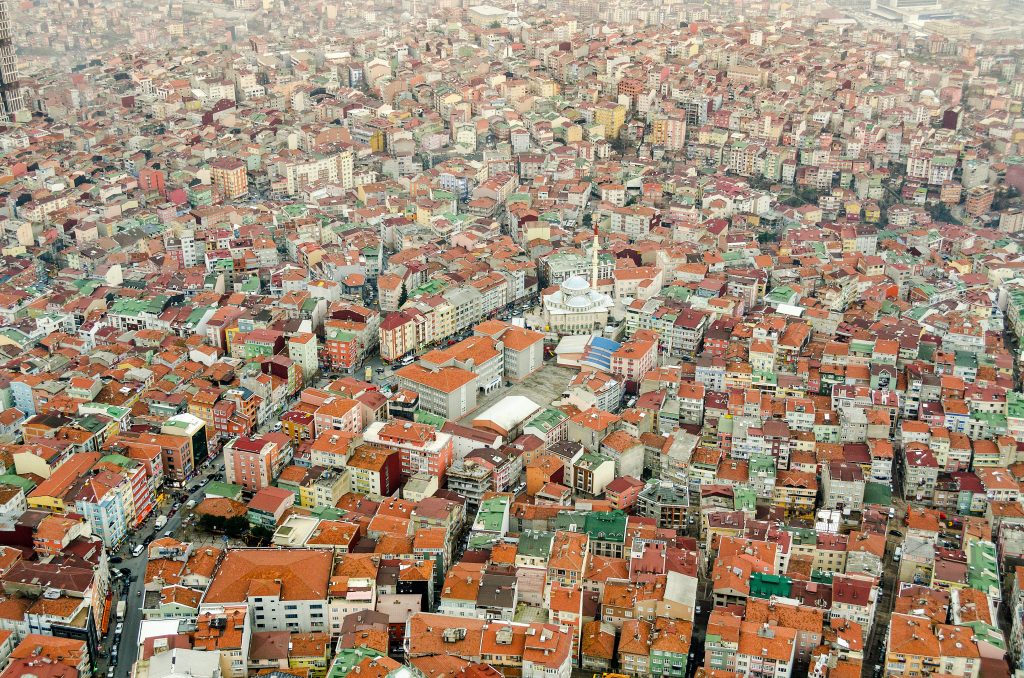
Prosperity has wrongly been correlated with economic growth, and even economic prosperity itself wrongly correlated with population increase. These are myths no one challenges as our culture is hostage to growth. Whether Democrat, Republican or even Green, every leader talks about growth, jobs, families and more growth, precisely what is killing this planet. The very simple reason is that the narrative of growth has allies everywhere: in the economic oligarchs who prop up leaders, and the voter cattle themselves who think that an economy with strong financial figures will trickle down into their pockets. The farm must continue no matter what, which is why any anti-growth conversation is shut down and censored. The truth few realise is that economic contraction can help us not only avoid collapse but truly thrive. Those who won’t thrive are the economic oligarchs, who control our politics and our narratives. Bigger families mean more technology users for Musk, Zuckerberg, and Bezos.
For some of us Americans, Trump’s executive orders seem to contain threats, either overt or covert, as the president seeks to fulfill his campaign promises, so keeping a careful eye on each other seems wise. The February 2025 issue of Harper’s Magazine has a takedown of the Democratic Party, “Expect More Bulldozings,” by Matthew Karp for the column Easy Chair. A professor of history at Princeton, Karp is a regular contributor to the magazine. I bring up “Expect” because it details in cool, uncharitable fashion the ways that the Democrats failed to protect us from Trump. An excerpt:
In the end, the $1.6 billion operation was a bust--the most expensive failure in American political history. Yet the impulse to proclaim Kamala Harris "a bad candidate" should be avoided. Who would have been better: Gavin Newsom, Pete Buttigieg…? These are interchangeable parts in a broken machine.
The fault is not in the Democrats' campaigns; it is in themselves. This is a party that represents the nerve center of American capitalism, ideological production, and imperial power. Elon Musk's contributions notwithstanding, in three months Harris raised far more money than Trump, from a much broader and deeper bench of wealthy elites. This is a party that embodies a contented American status quo--its faultless Constitution, its dynamic "opportunity economy," its "indispensable" role as military policeman of the global order. And this is a party for which everything is either righteously moral or bloodlessly technical, but for which nothing is political--that is, alert to real questions of power and subject to actual popular contestation.
Karp goes on to point out that the last three presidential candidates were “anointed,” not chosen by popular vote. So if nothing can make us good—neither the prospect of being dominated by Trump nor the likelihood of being wiped out by climate change—what choices are left to us to make?
Lyle As our species approaches extinction, our choices become severely limited. The first decision we face is whether to accept reality. Many individuals, influenced by indoctrination, anthropocentrism, or personal beliefs, ultimately choose to reject it. Those who reject reality often find themselves presented with numerous alternatives, including hope, denial, and a multitude of religions. These concepts are interconnected in various ways, reflecting a similar thought process when we confront our own mortality on a personal level and the fate of humanity on a planetary scale.
For those who choose to embrace reality, the next decision is whether to pursue happiness. Acceptance of reality is not easily achieved and is quite rare; it demands a connection to our environment and an understanding of its impact on our existence. This acceptance also requires personal courage. Ultimately, there is no distinction between accepting our own mortality and that of our species. After the initial shock of acceptance wore off, I found that I was neither more nor less happy, but I began to appreciate life more deeply. I experience a full spectrum of emotions—sadness, happiness, grief, joy, contentment, and many others. I cherish my friends and family, the beauty and unpredictability of nature, and the joy of movement. I love to laugh and embrace the many aspects of life that bring me delight.
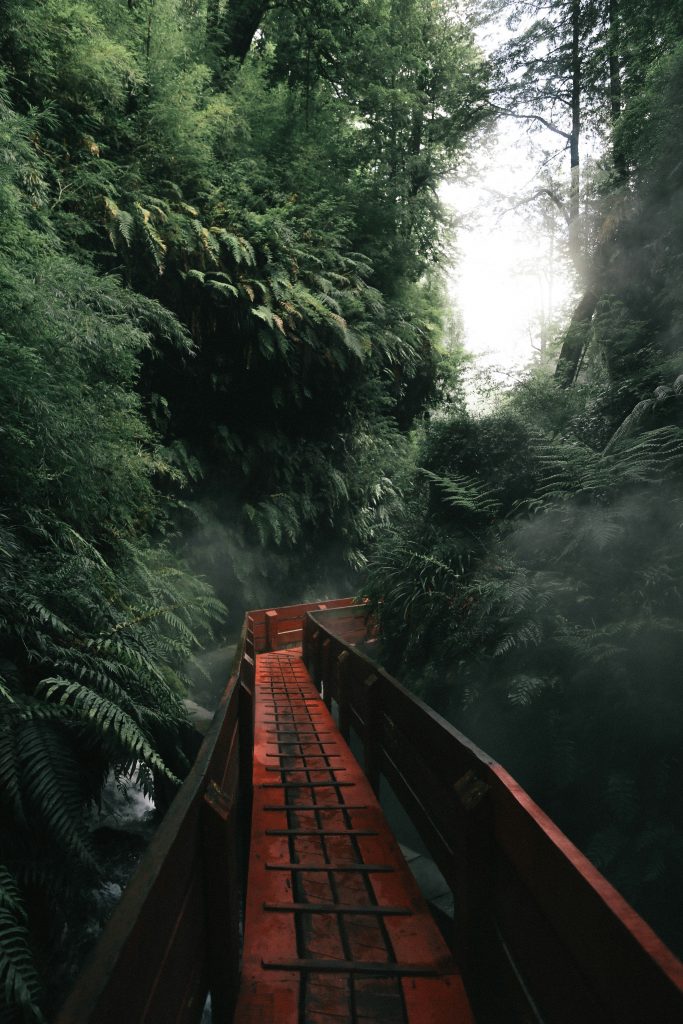
Many individuals who deny reality still find happiness. Few exemplify anthropocentrism, consumerism, and the denial of reality more than our current President. Due to his wealth and power, he is viewed as a success by nearly everyone, regardless of personal opinions. In my observations through the media over the last thirteen to fourteen years, the only time he appeared genuinely happy was while eating fast food. He derives pleasure from power at the expense of others and sees individuals of all species as mere commodities. His pampered existence seems devoid of true joy. In contrast, despite his wealth and power, it is I who am by far the happier person. True happiness exists independently of what humanity perceives as success and one’s ability to confront reality.
My advice to everyone is do what they can for nature, either directly or indirectly, and enjoy every moment of their lives. True happiness often lies in these simple acts.
George As a determinist, I don’t believe choice exists. It doesn’t mean we shouldn’t fight for choice, but the chances of avoiding the inevitable demise of humans are slim to none. The U.S. political system is what happens to a country with infinite consumer choice yet abysmally low political IQ: politics has long ago been bought out and branded into red-and-blue toothpaste, both equally corrosive flavours representing global capitalist totalitarianism and civilisational overshoot. The only difference between these corrupt factions is where they choose to draw their votes from. Politics creates an illusion of choice: all parties represent overshoot, dressed up in various ideological frameworks to appeal to different voters. The global sharp turn towards fascism is a desperate move of voters to reclaim the choice that they never had, only to realise, too late, that they merely surrendered even more of their choice to yet another power-hungry group of mobsters.
The only choice we have, should we choose to take it, is the only one that has ever worked in human history: resistance and revolution.
This revolution however, if it ever happens, will not include nature and the environment. Politics has become irrelevant when the most important voter and stakeholder, Nature, is not even being consulted. People will be fighting to end poverty, racism, inequality, and high energy bills, all of which are exclusively human issues. They won’t be fighting for the climate and ecological overshoot, which brought us here in the first place. The dots are too far apart to connect. Therefore, there is no choice other than choosing the flavour of global civilisational collapse we prefer: burnt toast or radioactive deluge. There is no escape velocity once you have come too close to the black hole of extinction. In times of crisis and scarcity we tend to work antagonistically rather than collaboratively, following the narratives of conflict and competition upon which we constructed this economy thousands of years ago. The tariff wars are indicative of the global struggle over land and resources that is only intensifying and could turn even more violent at any moment.
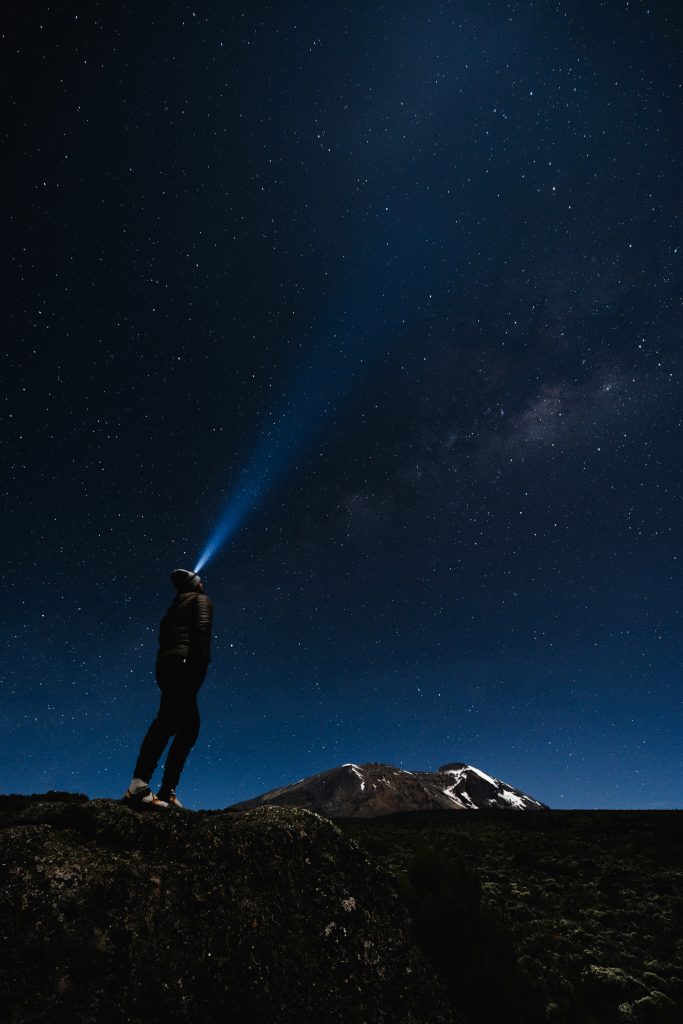
Lyle While there has been no fundamental change in humans for thousands of years, we have continuously adapted our behaviors in response to our environments. For instance, humans living in coastal areas often exhibit different behaviors than those in mountainous regions, a distinction necessary for survival. As our modern world becomes busier—filled with more people, lights, sounds, and smells—our capacity to process external stimuli becomes strained. Consequently, as population density increases, many individuals tend to withdraw into themselves as a form of self-protection. This shift fosters a growing societal focus on ‘me’ rather than ‘us,’ stifling curiosity and diminishing our collective engagement with the world around us. Because of this inward focus, individuals often uncritically accept information from dubious sources as fact. This phenomenon shapes our understanding of reality and our place within it.
Much of our hominid existence has been romanticized, leading to a perception of reality colored by long-held anthropocentric beliefs. For example, our ancestors are often referred to as ‘hunter-gatherers’ rather than ‘thief-gatherers,’ a term that carries different connotations. Cowboys are celebrated as rugged individualists, while Indigenous peoples are idealized as being one with nature, treating all plants and animals with respect. This extensive revisionism complicates our ability to discern an objective reality from our past. How deeply embedded in everything we see, know, and believe is the lie?

A Feb. 15, 2025, Guardian article, raises the possibility that Elon Musk’s and DOGE’s actions may create the conditions for new health threats:
Health agencies maintain tightly controlled databases with sensitive information, and upheaval at these agencies threatens the US healthcare system even as the threat of infectious diseases like bird flu continues to ramp up.
“The possibility of new outbreaks or public health events is certain given the recent concerning spread of bird flu, which is still hampered by a slow response,” said an employee at the US Centers for Disease Control and Prevention (CDC) who requested anonymity because they were not authorized to speak on the record.
“With external communications cut off, extensive work-stop orders and dramatic changes in the federal workforce, the ability of any health agency is severely limited and ultimately will serve no one but those who choose to profit off the suffering,” the employee said.
Other countries are no doubt monitoring what’s happening in the U.S. because the consequences may leap over political boundaries and spread. What’s your assessment of the likelihood of new health threats developing?
Lyle Epidemics date back approximately 5,000 years, originating in two villages in northeastern China when the global population was about 5 million people. The first documented pandemic occurred 2,500 years later, as the global population had increased to around 100 million. Epidemics are defined as sudden increases in the number of disease cases above what is normally expected within a specific geographic area or population. In contrast, pandemics involve outbreaks that spread across multiple countries or continents and require mobility between densely populated regions. Such widespread transmission was not feasible until human population density reached a level that allowed for the rapid spread of diseases among large groups of people.
The biodiversity that has been destroyed to accommodate human population growth served as the planet’s shield against the spread of virulent diseases for all species. The greater the number of humans and their domesticated animals, the higher the likelihood of disease transmission. Acknowledging the role of 8.2 billion people as the primary factor in more than a dozen existential threats is routinely ignored and denied by our species; infectious disease is no exception. Our capacity for denial of truth has increasingly evolved and expanded.
This administration’s placement of incompetent individuals in charge of a complex threat, along with the removal of those dedicated to addressing it, represents a more evolved form of denial. Their theory seems to be that if we don’t acknowledge disease, it doesn’t exist and isn’t important. The only level of denial remaining is that of death itself, and they have shown a disturbing capacity for embracing this denial.
New health threats will continue to emerge with increasingly dense populations of humans and their domesticated animals, as well as the ongoing loss of biodiversity. Humans are convinced that their exceptionalism can overcome any health challenge. Viruses would beg to differ.
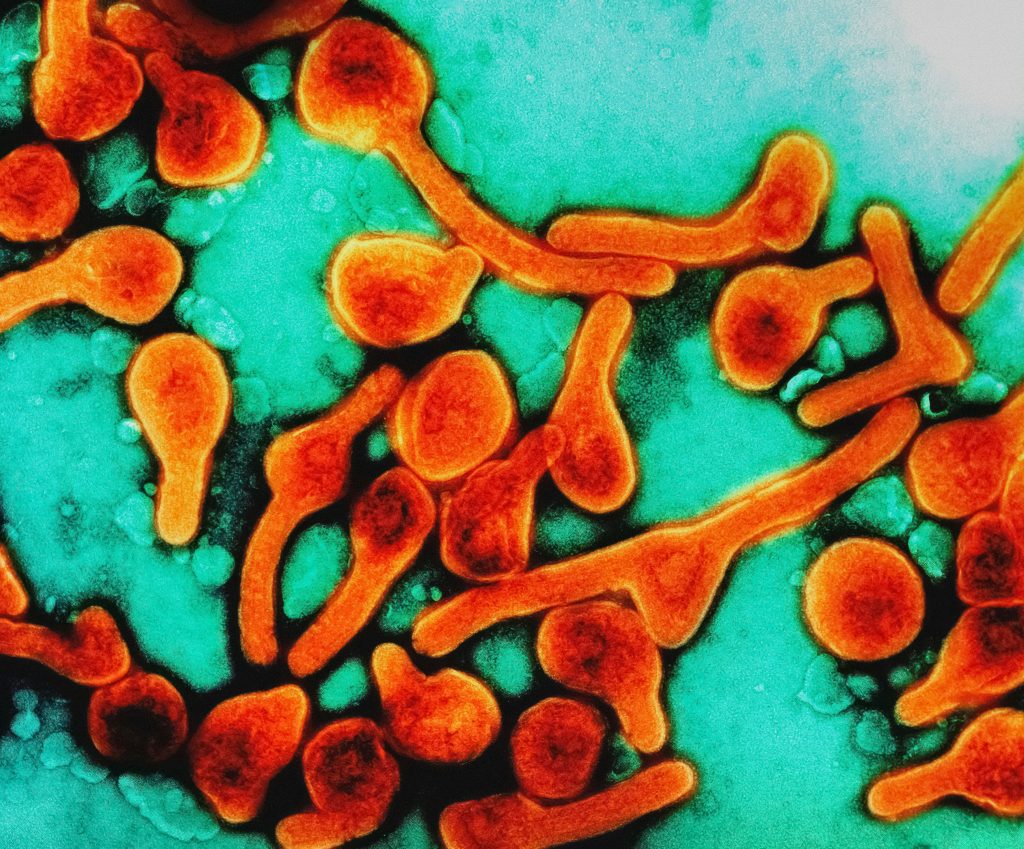
George There are two processes at work. First, the collapse of all social services, not just healthcare, as governments start to go bankrupt in many countries in the West: US, UK, France, Italy, Germany, etc. A stark example is the UK where the government is already bankrupt. It has raised taxes, but the money from these higher taxes isn’t going to healthcare or other services but to cover government debt and other expenses the broke government has incurred due to private ownership of infrastructure and institutions. This is a global aftermath of neoliberalist policies that opened the market to privatization and the effective ownership of government by corporations, i.e., the rich. The bottom line is that both people and government are going bankrupt, and the only ones profiting are those who were already rich and are now richer.
The second problem is climate change and the ecological apocalypse, both of which are triggers for viruses. Viruses play many important roles in the ecosystem, facilitating evolution (I call them the USB sticks of the genetic pool) as well as genetic exchange, just to mention two. But they are also major regulators. Whenever there is a disturbance in an ecosystem, the fastest way for the ecosystem to respond is to create these tiny molecules which can become predators of overproliferating species. We can expect to see many more viruses as ecosystems are disturbed, and this is perfectly normal. This is the ecosystem trying to bring itself back on track and establish some type of regulation. No healthcare system is ready for what can come, in the same way no one is ever ready for a pandemic. The impact of long COVID has affected millions of people physically and mentally in ways science is still unable to understand and cure. These are the war veterans from our conflict with nature.
I just finished a Time article about the frequency of young people getting cancer. Would either of you like to say something about modern life becoming more dangerous for us humans?
Lyle Wildfires, heat domes, hurricanes, and extreme weather events are hard to ignore; yet, much to the consternation of environmental activists, a significant segment of the population continues to deny anthropogenic global warming. Even among environmental advocates, there is often a tendency to view the rise in diseases such as cancer, Parkinson’s disease, and heart, liver, and kidney diseases—along with neurological disorders—as merely bad luck or the result of poor genetics.
The difficulty in definitively linking these disorders to the increasing presence of chemical toxins and microplastics allows agrochemical, petrochemical, and pharmaceutical companies to continue their practices without accountability. The industrial use of glyphosate and other pesticides, PFAS, heavy metals, dioxins, phthalates, and VOCs continues to accumulate in our environment, creating an ever more toxic planet.
Bioaccumulation may be the most dangerous term that people either don’t understand or don’t know. Every person and organism has physiological thresholds for warding off viruses, bacteria, and chemical toxins, which, when exceeded, can lead to illness, disease, or even death. Much to the delight of chemical companies, the greatest threats to our biosphere—chemical toxins and waste—often go unnoticed.
George A quote from the chapter “Self-Harming Civilisations” in my book In The Grip of Necrocapitalism.
As a desperate humanity attempts to flee the fires and floods it has set in motion, it will most likely follow the same ancient knee-jerk reactions: look for solutions in half-baked technology and “destroy-now, pay-later capitalism” rather than look deep within itself.
All images except those of the writers are from unsplash.com; we thank the artists for allowing us to include their work. The featured photo of Emei Mountain, Leshan, China, is by Eugene Nelmin.

